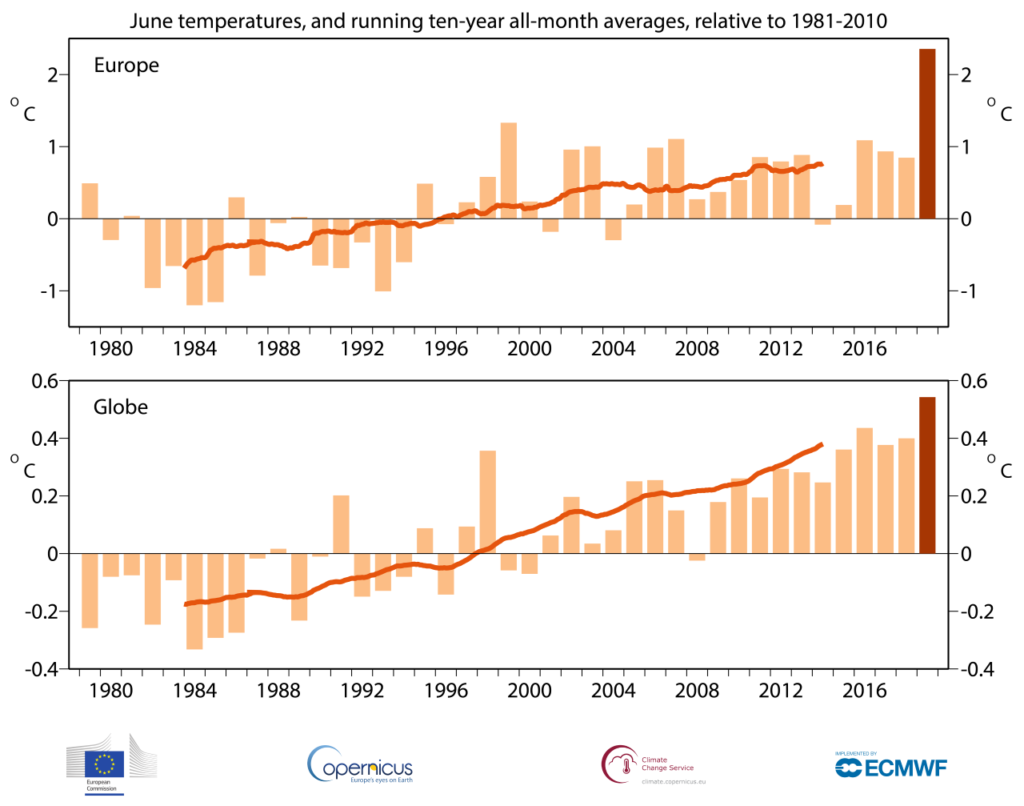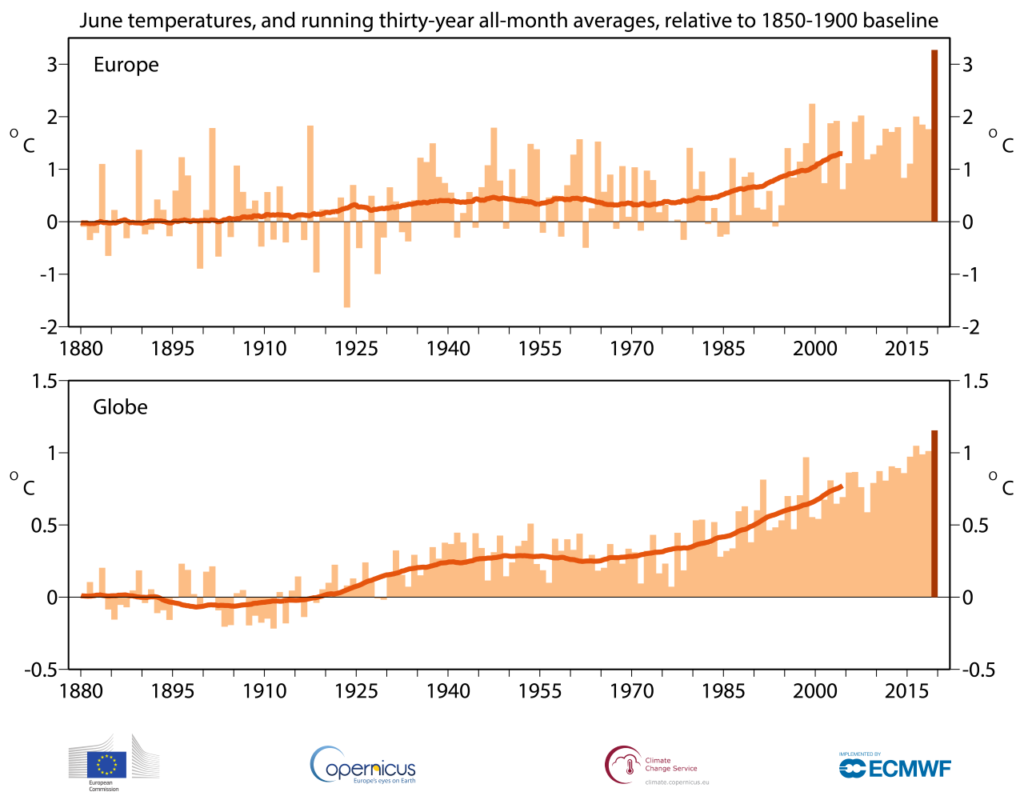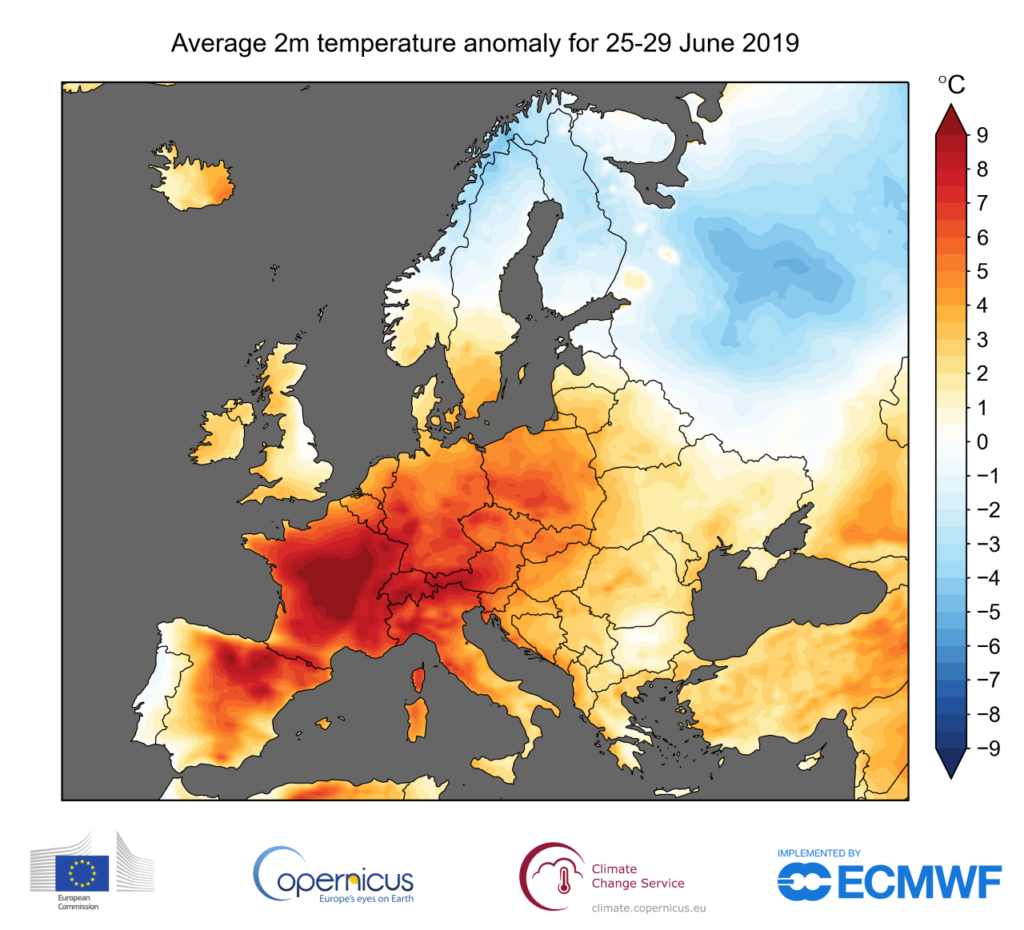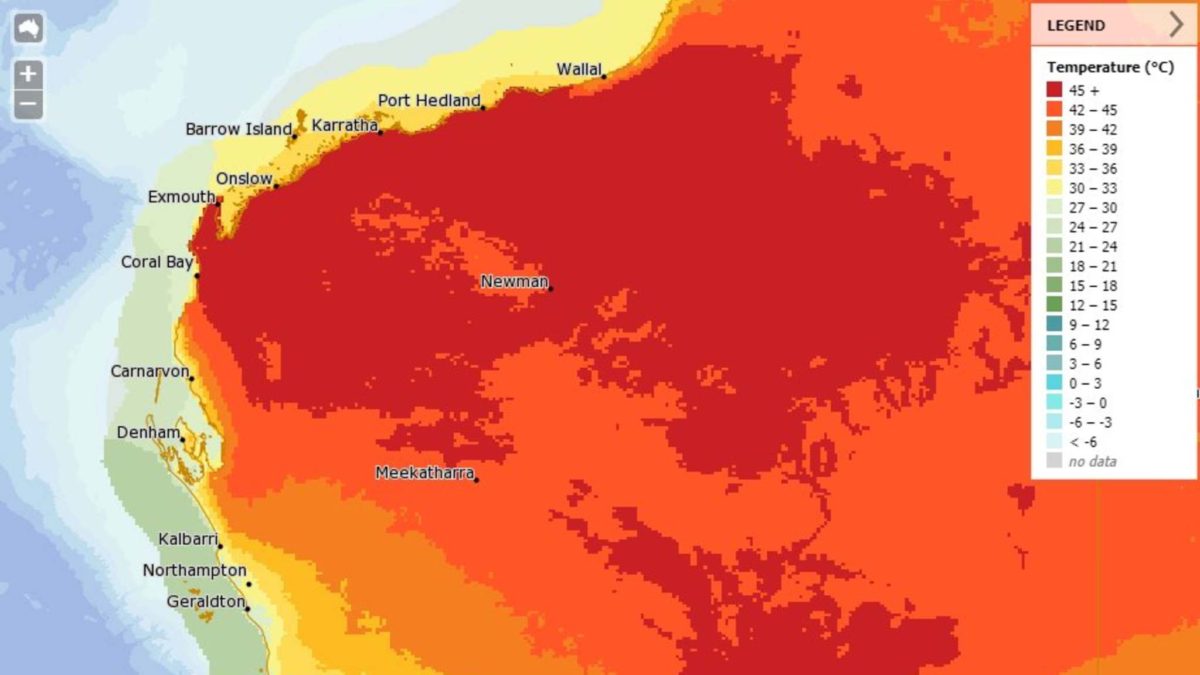June 2019 hottest ever recorded on Earth – “Temperature records haven’t just been broken. They have been obliterated.”

By Conrad Duncan
2 July 2019
(The Independent) – Last month was the hottest June ever recorded, the EU’s satellite agency has announced.
Data provided by the Copernicus Climate Change Service (C3S), implemented by the European Centre for Medium-Range Weather Forecasts on behalf of the EU, showed that the global-average temperature for June 2019 was the highest on record for the month.
The data showed European-average temperatures for June 2019 were more than 2C above normal and temperatures were 6-10C above normal over most of France, Germany and northern Spain during the final days of the month, according to C3S.
Global-average temperature was about 0.1C higher than during the previous warmest June, in 2016.
Experts have said climate change made last week’s record-breaking European heatwave at least five times as likely to happen, according to recent analysis.
Rapid assessment of average temperatures in France between 26-28 June showed a “substantial” increase in the likelihood of the heatwave happening as a result of human-caused global warming, experts at the World Weather Attribution group said.
The recent heatwave saw France record the hottest temperature in the country’s history (45.9C) and major wildfires across Spain, where temperatures exceeded 40C.
Germany, Poland and Czech Republic also recorded their highest temperatures for June last week. […]
Peter Stott, an expert in analysing the role of climate change in extreme weather at the Met Office, claimed that “a similarly extreme heatwave 100 years ago would have likely been around 4C cooler.”

Spikes in European-average temperature of more than 1C above normal have occurred before, such as in 1917 and 1999, but C3S said the recent heatwave was notable because the sudden increase came on top of a general rise of around 1.5C in European temperature over the past 100 years. […]
In response to the record-breaking heat, Professor Hannah Cloke, natural hazards researcher at the University of Reading, said: “We knew June was hot in Europe, but this study shows that temperature records haven’t just been broken. They have been obliterated.
“This is the hottest June on record in Europe by a country mile, and the warmest June we have ever seen globally.
“Heatwaves occur in any climate, but we know that heatwaves are becoming much more likely due to climate change. The global climate just keeps getting hotter, as greenhouse gases continue to build up, as scientists have predicted for decades.” [more]
June was hottest ever recorded on Earth, European satellite agency announces

Record-breaking temperatures for June
2 July 2019 (C3S) – Summer has barely begun, but temperature records are already being broken. Data released today show that the European-average temperature for June 2019 was higher than for any other June on record. Average temperatures were more than 2°C above normal and it has become the hottest June ever recorded.
Although not as persistent as that of summer 2018, this short heat wave, caused by a mass of hot air coming from the Sahara Desert, was intense. The five days of unusually high temperatures followed days with record-breaking temperatures further east in Europe. This led to the month as a whole being around 1°C above the previous record for June, set in 1999, and about 1°C higher than expected from the trend in recent decades.
Data provided by the Copernicus Climate Change Service (C3S), implemented by the European Centre for Medium-Range Weather Forecasts on behalf of the European Union, show that the global-average temperature for June 2019 was also the highest on record for the month. It was about 0.1°C higher than that of the previous warmest June, in 2016, following a strong El Niño event.
The map of temperature anomalies shown above, based on the latest C3S data, highlights just how unseasonably warm the end of the month was. Compared to the average for the same five days during 1981-2010 (the standard 30-year climatological reference period), temperatures of 6-10°C above normal occurred over most of France and Germany, northern Spain, northern Italy, Switzerland, Austria, and the Czech Republic.
Although it is difficult to directly attribute this heat wave to climate change, such extreme weather events are expected to become more common as the planet continues to warm under increasing greenhouse gas concentrations.
Looking at the temperature data from a longer-term perspective reveals the month to be even more unusual. Merging the latest C3S data with datasets that extend further back in time shows that the June 2019 European-average temperature was more than 3°C higher than the average for 1850-1900.
Spikes in European-average June temperature of more than 1°C above normal have occurred several times during the last 150 years; in 1901 and 1917, as well as 1999, for example. The temperature in June 2019 was exceptional because its spike came on top of a general rise of around 1.5°C or more in European temperature over the past one hundred years. This rise in European temperature is notably higher than that of around 1°C seen globally.
Jean-Noël Thépaut, Head of C3S, comments: “Although local temperatures may have been lower or higher than those forecast, our data show that the temperatures over the southwestern region of Europe during the last week of June were unusually high. Although this was exceptional, we are likely to see more of these events in the future due to climate change.”


